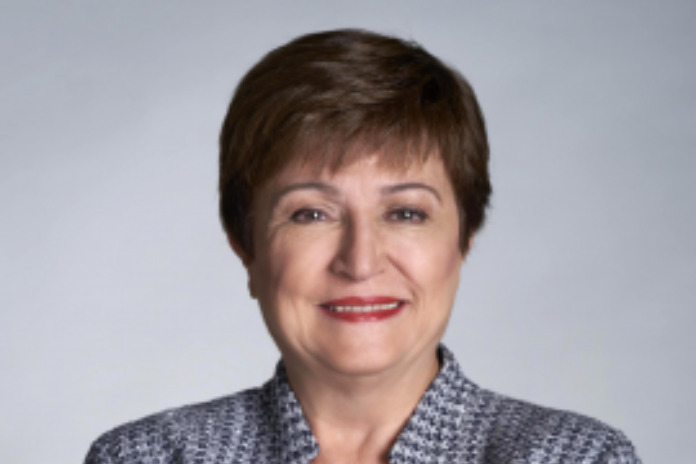DAKAR, Senegal – Kristalina Georgieva, managing director of the International Monetary Fund (IMF), the minister of finance and budget of Senegal, Abdoulaye Daouda Diallo, and the minister of economy Amadou Hott, co-hosted a hybrid meeting with African ministers of finance.
The managing director and ministers discussed economic prospects and how to address key risks, including those posed by the pandemic, climate change, security challenges, and spillovers from the global economy.
At the end of the meeting, Georgieva issued the following statement:
The global economy is rebounding, with our October World Economic Outlook projecting 5.9 percent growth this year and 4.9 percent in 2022. However, we project sub-Saharan Africa to grow by 3.7 percent this year and 3.8 percent next year, increasing the divergence vis-à-vis advanced economies – and that amidst rising uncertainty around new variants and financial conditions. In particular, new COVID-19 variants require continued vigilance and a renewed global push to increase vaccine equity. Countries in the region also need to continue to prioritize critical measures to overcome the ongoing health crisis and social assistance programs for vulnerable groups.
I was encouraged by the commitment of ministers from the region to pursue well-targeted policies consistent with the maintenance of macroeconomic stability and a robust medium-term reform agenda. These include measures to improve revenue mobilization, enhance governance and transparency, promote entrepreneurship, address the challenges posed by climate change and achieve higher and more inclusive growth. Particular attention is also needed to generate broader economic opportunities – including for women, youth, and vulnerable groups that have been disproportionately affected by the pandemic.
The meeting also highlighted the importance of renewing efforts to deepen international cooperation, mobilize financing from the international community, and address challenges associated with fragility, insecurity, and persistent economic risks. The IMF remains a full partner in these efforts, and I was particularly encouraged to hear that most Ministers agreed that the IMF’s recent $650 billion SDR allocation to member countries was helping them address these challenges, while noting that additional efforts will be needed. We recognized the importance of African countries having a seat at the table in discussions on issues that affect them, in order to ensure global efforts to support them are as effective as possible.
There was also broad agreement that reducing vulnerabilities, including those associated with rising debt levels, are an important priority over the medium term. In this regard, improving the functioning of the G-20 Common Framework for Debt Treatments and its timely implementation will be crucial for those countries that may require debt treatment. Moreover, actions and broader reforms to reduce risks and build confidence would help bring investment and financing to the region at lower cost.
The countries in the region should continue to address the health crisis, while ensuring that policies are well-targeted and consistent with the maintenance of macroeconomic stability.
Finally, I would like to thank minister Diallo and minister Hott, who co-hosted this event with me, and all participants for their contributions toward a fruitful exchange of views.





